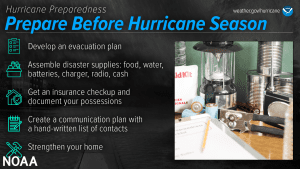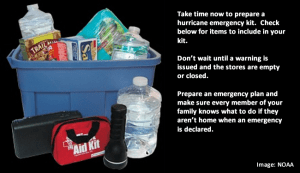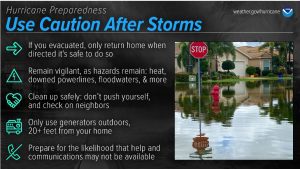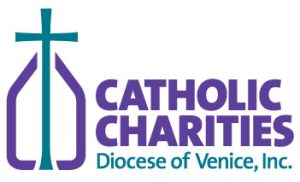As the 2024 Atlantic Hurricane Season commences, emergency management officials emphasize that having an emergency preparedness plan will help lessen the stress when inevitably, the new tropical system forms and threatens the region. Key things like knowing your evacuation zone, knowing if your home can withstand forecasted winds, and having emergency supplies and documents ready ahead of time, are key actions to take ahead of the season.
First, officials recommend each family have a Disaster Supply Kit, which should have a minimum of enough water and food to last three to seven days. That means one gallon of water per person/per day, plus enough non-perishable food that does not require electricity to prepare and consume safely. Those who care for infants or the elderly need to plan for what specialty items will be needed such as medications.

Other key items for a Disaster Supply Kit include clothing (rain gear and sturdy shoes), blankets/pillows, first aid kit, all medicines and prescription drugs, toiletries, flashlights, battery-operated radio, cash, important documents in a waterproof container, and any items for your pets.
If a storm were to strike, getting basic supplies will be a challenge, and the Federal Emergency Management Agency stresses that in the aftermath of a major disaster, you should expect to be on your own for at least three days, if not longer, before substantial state and federal resources can be expected.
To help encourage the people of Florida to buy their emergency supplies now, this year, the Florida Legislature has approved two 2024 Disaster Preparedness Sales Tax Holidays. The first tax holiday is June 1 to 14, with the second taking place from August 24 to September 6.

During these two periods, certain hurricane supplies will be tax-free. Along with the traditional items in a supply kit – like flashlights, radios, tarps and batteries – the tax holiday also includes a number of items related to the safe evacuation of household pets. For a complete list of eligible items, check your local retail store or visit https://floridarevenue.com/disasterprep. If you have a Disaster Supply Kit that went unused in 2023, inspect it to ensure all items are fresh and the batteries are still good.
Anyone who has medical, or transportation issues must contact their city/county Emergency Management Office (the number is available online or you can dial the non-emergency 511), to register and to potentially be relocated to a shelter if a storm threatens.
Another key action is to make sure your insurance is up-to-date, and photographs are taken of all valuables before the storm. Keep in mind that hurricane and flood insurance will take a minimum of 30 days to go into effect.

Should disaster strike, Catholic Charities, Diocese of Venice, Inc., will be at the forefront in preparing and responding. Catholic Charities will send a team to the epicenter of the disaster and then coordinate to set up relief centers — called PODs, which stands for Points-Of-Distribution – where the need is greatest. These centers – often located at Parishes or next to Catholic Charities offices – will be sites where water, clothing, food and other disaster relief assistance can be distributed.

The Diocese of Venice is experienced in responding to these storms. Therefore, each Parish, Catholic school and other entities have hurricane preparedness plans which assist in preparation before a storm and recovery afterwards.
NOAA and emergency management officials remind everyone that taking a few steps now can prevent panic and confusion if a storm were to threaten the area. To track and learn more about hurricanes, visit www.nhc.noaa.gov/.





